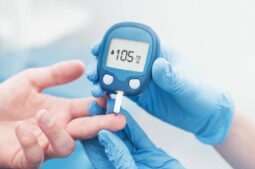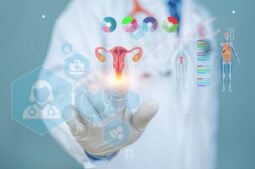
The decision to have IVF treatment is a big one. It comes probably after a long period of hoping for pregnancy, fearing infertility. It comes to terms with the need for fertility treatment. It’s understandable that, once you’ve reached your decision, you’re going to hope for speedy results. But this is a series of stages rather than a single treatment. How long IVF takes between initial consultation and embryo transfer? This differs between individuals because every patient has their own unique set of circumstances. In general, and barring exceptional circumstances, you can expect an initial cycle to be somewhere between six and eight weeks.
In our blog article, we take you through the steps, highlighting where the planned timescale might go adrift, and, at the end of it all, your chances of eventual success when you hold your baby in your arms.
Initial consultation
When you make your first visit to an IVI clinic, our resident physician will start by reviewing your, and, where relevant, your partner’s complete medical history and records of any previous treatments. We will run some tests so that our specialists can begin to reach a diagnosis. These include a complete gynaecological examination, and possibly blood tests and an ultrasound scan for the woman, and a sperm analysis if the intention is to use the partner’s sperm in the IVF treatment. When these preliminaries have been completed, our clinicians will be able to make a personal recommendation for the treatment that is most suitable to the individual patient’s needs.
You can find out more about the initial consultation in our video about your first visit to IVI.
The series of IVF processes
After diagnosis, the medical intervention stages of IVF treatment begin. You can’t be certain of the timescale involved. Anyway, the first step, ovarian stimulation, is the most time consuming.
Ovarian stimulation
The purpose of this step of the treatment is to stimulate your ovaries to produce multiple mature eggs rather than the normal one per month. Medication consists of self-administered hormonal injections over a period of between 11 to 14 days. During this time, your gynaecologist carries out three or four ultrasound scans and blood tests to monitor progress as the follicles containing the eggs begin to develop. When an adequate number have reached a size between 14 and 16 mm, a dose of the human gonadotrophin hormone (hCG) is administered. Egg collection is scheduled for 36 hours later.
Collection of the eggs
This step of the IVF process is a quick and simple procedure of about 15 to 20 minutes, carried out under light sedation so there is no discomfort. The ovaries are reached via the vaginal cavity. Each follicle is punctured and the fluid containing an egg, known as an oocyte, gently aspirated through a fine needle. After a short rest, you will be free to return home and resume normal activities.
Fertilisation and embryo culture
You then have a wait of around five to six days. During this time the mature oocytes are fertilised in the laboratory. The embryos are observed as they develop so fertility specialists can select those that show the healthiest potential for successful pregnancy. At this stage it is also possible, if there is a medical need, to conduct genetic testing.
Embryo transfer
Finally, it’s the day you’ve been waiting for. Your five-to-six-day wait won’t have been entirely uneventful: some medication is needed to help prepare your womb lining, the endometrium, to optimise receptivity to an embryo. The selected embryo is transferred to your uterus by means of a specially designed cannula in a simple process that does not require anaesthetic.
The two-week wait
Transfer of the embryo is technically the end of the IVF treatment. So far, the process has taken six to eight weeks, depending on your personal treatment plan. But now comes what many patients describe as the most difficult period of all. This is the two-week wait until you can have a blood test to confirm whether you are pregnant.
How might IVF take a longer or shorter time?
There’s no absolute guarantee that all will go according to plan on each cycle of IVF and sometimes events can cause a delay in the process. Examples include:
- When your response to the ovarian stimulation is not as expected, it is possible that very few or even no good quality eggs can be retrieved. At the other end of the scale, if your response is too active, you could be at risk of ovarian hyperstimulation. In both cases, it is likely that your current cycle would need to be abandoned and a new cycle started at a later date.
- If there are reasons for you to need pre-implantation genetic testing, this could add a minimum of three weeks to the timescale.
- Whenever your first IVF cycle, resulted in a number of healthy embryos. After one is selected for transfer, the remaining embryos would be frozen. If the first attempt was not successful, subsequent IVF cycles would be considerably quicker. This is because you would skip the ovarian stimulation and egg retrieval phases.
Overall success rates at IVI
IVF is not a quick procedure, but with IVI you can set out with the confidence of knowing that we have a 95% pregnancy rate after three attempts, including the use of frozen embryos as described above. This rises to an overall 99% pregnancy rate when you include the use of donor eggs. We’re sure you will agree that the time spent on the treatment will all be worth it in the end.





Comments are closed here.